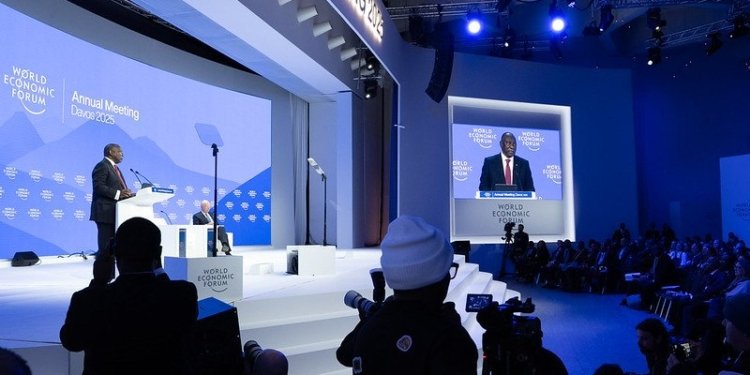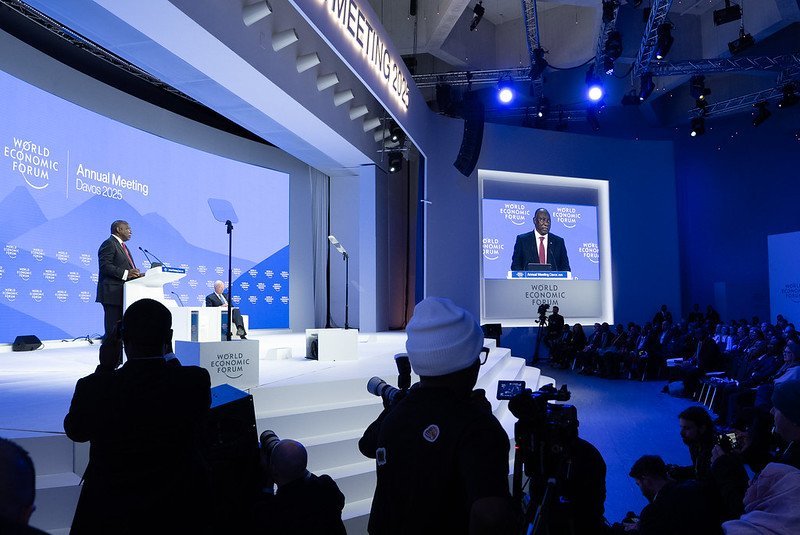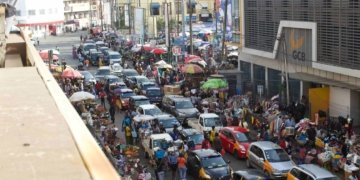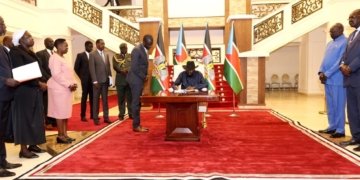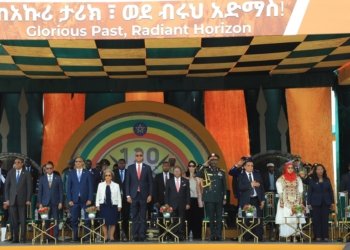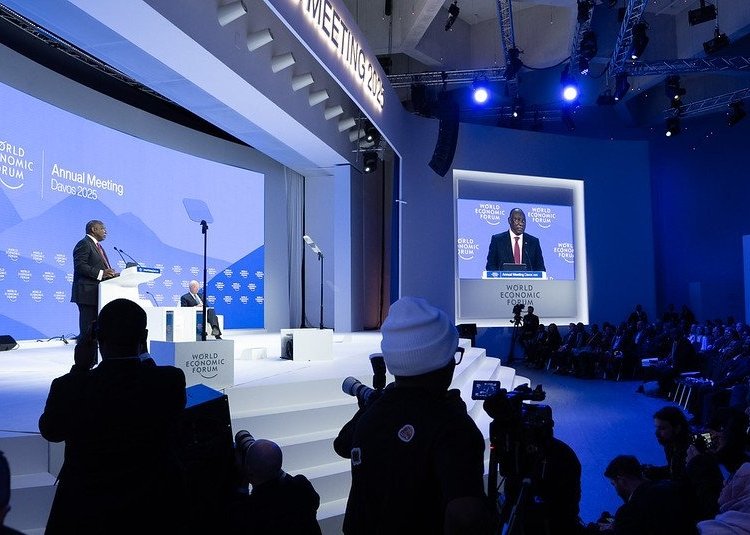DAVOS, Switzerland (BG) — The African Continental Free Trade Area (AfCFTA) could transform Africa’s economic and social fortunes, unlocking opportunities for inclusive growth and sustainable development, South African President Cyril Ramaphosa said Tuesday at the World Economic Forum (WEF) in Davos.
Ramaphosa emphasized the transformative role of the AfCFTA in reshaping Africa’s economic landscape, while calling for global solidarity and cooperation to address pressing global challenges.
“The African Continental Free Trade Area has the potential to change the economic and social fortunes of the continent,” said Ramaphosa, highlighting Africa’s growing importance on the global stage.
This year, South Africa holds the G20 Presidency for the first time, marking a historic milestone as the forum convenes in Africa.
Under the theme of “solidarity, equality, and sustainable development,” Ramaphosa outlined South Africa’s G20 agenda to promote inclusive growth, address inequality, and tackle climate challenges.
Ramaphosa positioned the AfCFTA as a key driver of economic transformation, pointing to its potential to bolster regional integration, trade, and job creation across the continent.
“Africa continues to be an expanding market for goods and services,” he said, adding that the continent is home to the youngest population in the world and possesses unmatched natural resource wealth.
The AfCFTA is a monumental free trade initiative, uniting 55 African Union member states and eight regional economic communities (RECs).
With a population of more than 1.2 billion people and a combined GDP of approximately $3.4 trillion, the AfCFTA is one of the flagship projects of the African Union’s Agenda 2063: The Africa We Want.
Infrastructure Revolution is Propelling Africa’s Growth
He called on G20 members to support the AfCFTA Adjustment Fund, which promotes sustainability, inclusive growth, and regional integration.
The South African president also highlighted the importance of infrastructure development to Africa’s growth, describing it as a cornerstone of the continent’s economic progress.
“An infrastructure revolution is propelling Africa’s growth,” he noted, urging investments in critical areas such as roads, energy, telecommunications, and digital connectivity.
In his speech, Ramaphosa called for greater cooperation on the beneficiation of Africa’s critical minerals—essential resources for the global energy transition.
He advocated for a G20 framework to promote local value addition and green industrialization.
“As minerals extraction accelerates to match the needs of the energy transition, the countries and local communities endowed with these resources must be the ones to benefit the most,” he said.
Ramaphosa emphasized the need for low-carbon manufacturing value chains and investments in green technologies to ensure Africa’s resources contribute to sustainable development.
Tackling Debt and Climate Challenges
Ramaphosa highlighted the urgent need for debt relief and climate financing to address the challenges faced by low-income and developing nations, particularly in Africa.
Debt sustainability for low-income countries is one of South Africa’s four G20 priorities.
He criticized the inequity in the distribution of Special Drawing Rights (SDRs) by global financial institutions, noting that over 60% of SDRs are allocated to wealthy nations.
“These drawing rights should be redirected to enable countries in Africa and other parts of the Global South to realise their developmental aspirations,” he said, urging G20 nations to leverage private capital and create innovative financing solutions to support sustainable development.
Climate change and disaster resilience also featured prominently in Ramaphosa’s address.
He called for increased funding to support the just energy transition in developing economies and for mechanisms to finance post-disaster reconstruction.
“The increasing rate of climate-induced natural disasters is affecting countries that can least afford the costs of recovery and rebuilding,” he warned.
A Call for Global Cooperation
At the heart of Ramaphosa’s speech was a call for global solidarity and collaboration to tackle the challenges of the 21st century.
Citing the legacy of Nelson Mandela, he reminded the audience of the interdependence of nations and humanity’s shared responsibility to foster progress.
“The rights and freedoms of one people cannot be separated from the rights and freedoms of all peoples,” he said, emphasizing the importance of collective action in addressing poverty, inequality, unemployment, and climate change.
South Africa’s G20 Presidency, Ramaphosa stressed, is an opportunity to showcase Africa’s promise and to foster partnerships that will drive inclusive growth and development.
“Through its G20 Presidency, South Africa is well-positioned to advance global cooperation and build partnerships for growth and development,” he said.
In closing, Ramaphosa extended an invitation to G20 leaders to visit South Africa and experience its beauty and potential firsthand.
“Come and see South Africa for yourself, the most beautiful country in the world,” he said.
Ramaphosa’s address in Davos set a bold and ambitious tone for South Africa’s G20 Presidency, with a clear focus on leveraging Africa’s resources, youth, and innovation to create a more inclusive, sustainable, and equitable global economy.
As the world’s attention turns to Johannesburg later this year, the G20 summit promises to be a pivotal moment for Africa’s rise on the global stage.
